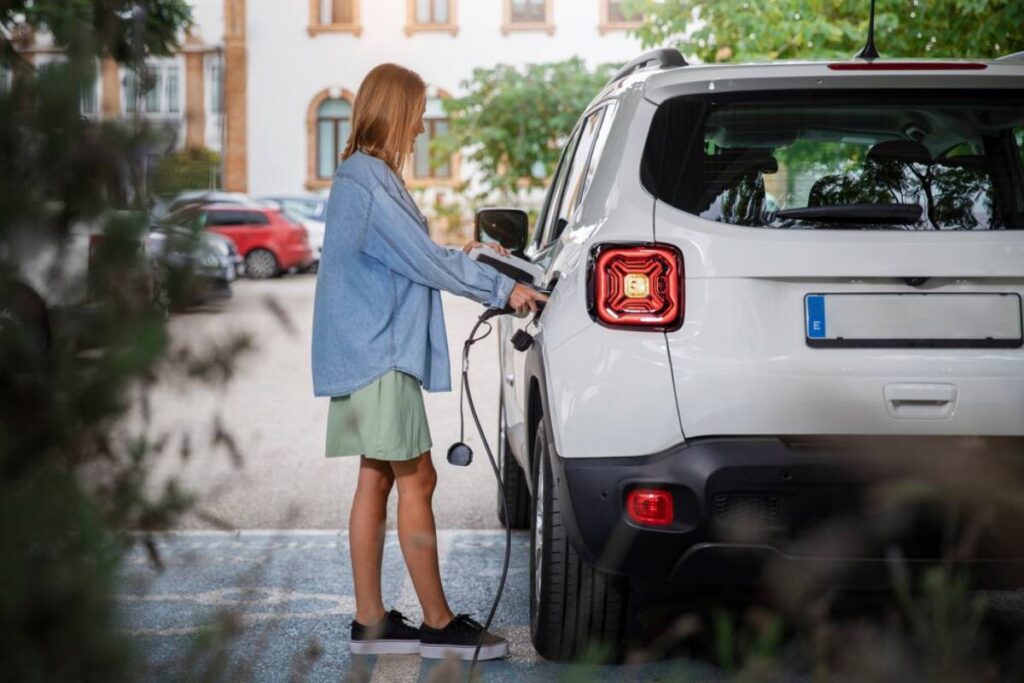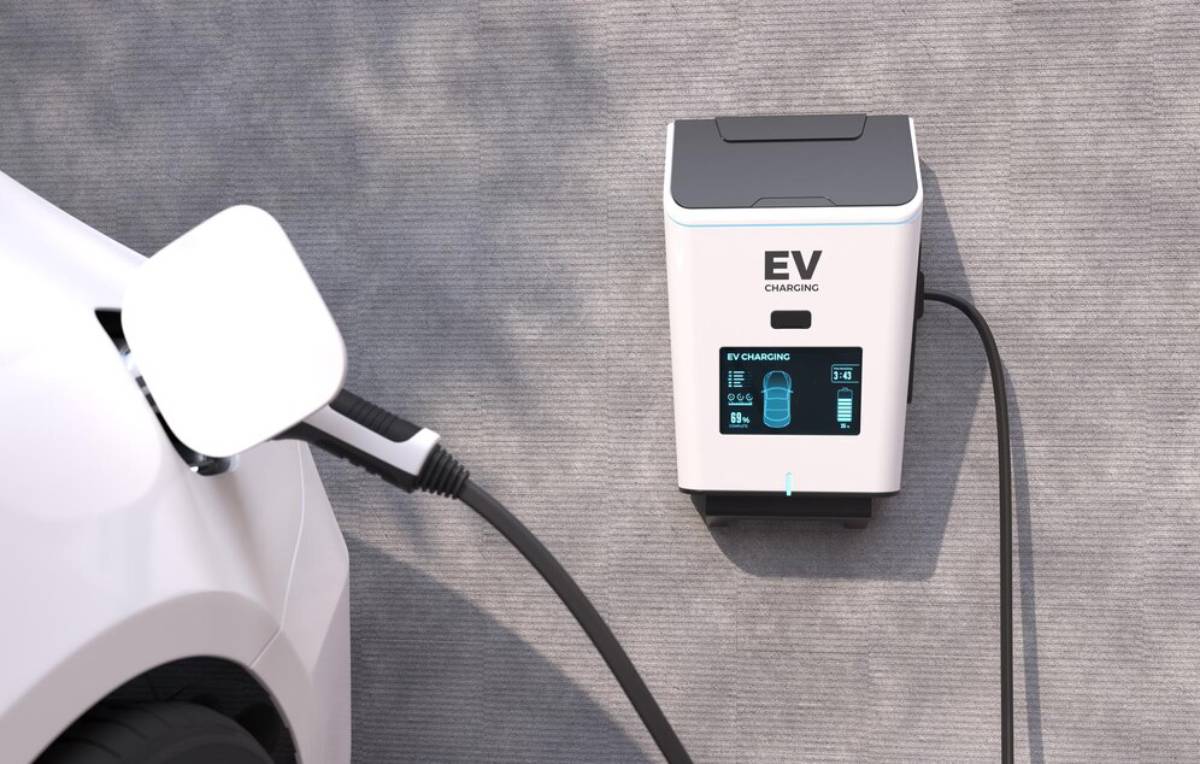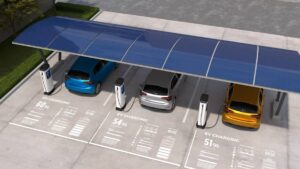The Automobiles Blog

Understanding Total Cost of Ownership for Electric Cars
The Real Price of Going Electric
The electric vehicle (EV) market has rapidly accelerated in the past decade. With their sleek designs and advanced tech, EVs are capturing drivers’ imaginations in the UK and beyond. They also promise a greener future. Thinking about switching from petrol or diesel to electric? You should ask: What’s the real cost of owning an electric car?
The answer lies in understanding the Total Cost of Ownership (TCO). This goes beyond the price tag you see at the dealership. TCO covers the purchase price, charging costs, insurance, maintenance, depreciation, and government incentives.
This blog unpacks the full picture of EV ownership costs. We’ll look at the factors, show possible savings, and compare them to traditional vehicles. This guide will help you make a smart choice, whether you’re a first-time buyer or just curious about EVs.
What is the Total Cost of Ownership (TCO)?
TCO stands for the total cost of owning a vehicle. It includes the price to buy, operate, and replace the vehicle during its life. It includes:
- Initial purchase price
- Insurance premiums
- Energy (fuel or electricity) costs
- Servicing and maintenance
- Depreciation and resale value
- Incentives or tax credits
For EVs, these factors can differ significantly from internal combustion engine (ICE) vehicles. Electric cars might cost more at first. However, their lower running costs and government incentives can make them cheaper over time.
Upfront Costs: Breaking Down the Initial Investment
A key difference between EVs and traditional cars is the initial price. Many EVs cost more than petrol or diesel cars. This is mainly because battery production is pricey.
Average EV Prices in the UK
As of 2025, the average cost of a new EV in the UK is around £32,000, compared to £28,000 for an equivalent ICE car. But this price gap is getting smaller because battery technology is improving and production is increasing.
Government Grants and Subsidies
The UK government offers several green vehicle incentives:
- Plug-in Car Grant (PiCG): Offers up to £2500 off eligible EVs.
- Home Charging Scheme: Covers 75% of installation costs for a home charge point.
- Exemption from Vehicle Excise Duty (VED): Most EVs are currently exempt.
They can greatly lower the higher upfront cost, especially with manufacturer discounts.
Leasing vs Buying
To reduce the initial financial burden, many drivers opt to lease an EV. Leasing gives you access to new models. It also lowers your monthly costs and reduces maintenance worries. Over three years, a lease can also help you sidestep depreciation risks.
Energy Costs: Charging vs Refuelling
Home Charging

Home charging is the most cost-effective way to fuel your EV. With overnight tariffs like Octopus Go, EV owners pay just 7.5p per kWh. This means about 2p per mile.
Public Charging
Using rapid or ultra-rapid public chargers costs more. Rates range from 35p to 70p per kWh. Some networks offer subscription models for reduced rates.
Comparing Fuel vs Electricity
Let’s consider a popular model comparison:
- Petrol Car (average 40 mpg): £160 per 1,000 miles
- Electric Car (4 miles per kWh, at 7.5p/kWh): £19 per 1,000 miles
The difference is striking. Over a year (assuming 10,000 miles), an EV owner could save over £1400 on fuel alone.
Charging Infrastructure Costs
If you don’t have off-street parking, installing a home charger might be tricky. Some councils are rolling out on-street charging solutions. Access and pricing vary by region.
Maintenance and Servicing: Lower Long-Term Burdens
EVs have fewer moving parts than ICE vehicles, meaning fewer things can go wrong. There’s no engine oil, timing belts, or exhaust systems to maintain.
Average Annual Maintenance Costs
- EVs: £200–£300
- ICE vehicles: £500–£700
EVs primarily need:
- Tyre replacements
- Brake servicing (less frequent due to regenerative braking)
- Battery and software checks
Battery Longevity
Modern EV batteries are built to last. Most have an 8-year or 100,000-mile warranty. However, real-world data shows that batteries often last longer with little degradation.
Insurance and Taxation: Shifting Norms
Insurance

Initially, insurance for EVs was higher due to unfamiliarity and expensive parts. But today, the gap is closing as insurers collect more data. Using comparison sites and specialist EV insurers can help reduce premiums.
Road Tax and Congestion Charges
As of 2025:
- Vehicle Excise Duty (VED): EVs remain exempt.
- ULEZ and Congestion Charge Exemptions: In cities like London, EVs skip daily fees. This saves drivers hundreds each year.
These benefits may evolve as governments reconsider how to replace fuel tax revenues.
Depreciation and Resale Value
Depreciation is one of the largest contributors to TCO. EVs used to lose value faster than ICE cars. This was because of quick tech changes and doubts about battery life.
However, the situation is improving:
- High demand for used EVs is boosting resale values.
- Models like the Tesla Model 3 and Nissan Leaf retain 50–60% of their value after three years.
- Government incentives and rising fuel prices are making second-hand EVs more appealing.
Resale values vary by model, condition, and range capabilities. Choosing a well-reviewed, future-proof EV can significantly reduce TCO.
Real-World Example: 5-Year TCO Comparison
Scenario: EV vs Petrol Hatchback
- Vehicle 1: Nissan Leaf (£30,000)
- Vehicle 2: Ford Focus petrol (£25,000)
- Mileage: 10,000 miles/year over 5 years
Total Costs (Estimates):
| Cost Category | Nissan Leaf | Ford Focus |
| Purchase Price | £30,000 | £25,000 |
| Fuel/Energy | £1,000 | £8,000 |
| Maintenance | £1,250 | £3,000 |
| Insurance | £3,000 | £2,800 |
| Road Tax & Charges | £0 | £1,200 |
| Depreciation | £13,000 | £14,000 |
| Total | £48,250 | £54,000 |
Over five years, the EV provides a potential saving of £7500+ despite its higher purchase price.
Conclusion: Is an EV the Right Financial Move?

The upfront cost of EVs can seem high. However, when you consider the total cost of ownership, the picture looks much better. EVs are a smart long-term investment. Lower fuel costs, less maintenance, tax breaks, and government grants support this choice.
As the UK moves closer to its 2035 ban on new petrol and diesel cars, EV adoption will only accelerate. Knowing today’s economics helps drivers prepare for a sustainable and smart financial future.
If you’re unsure, first calculate your yearly mileage, energy costs, and possible incentives. You might be surprised by how quickly the savings stack up.
Ready to take the electric leap? No matter if you’re looking at your first EV or upgrading, knowledge and electricity are key. Keep learning, compare models, and don’t hesitate to speak to a certified EV advisor.
Join the electric revolution—it pays off in more ways than one.









